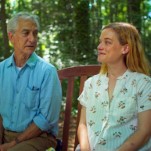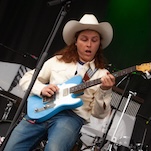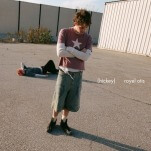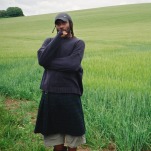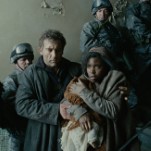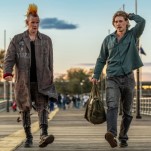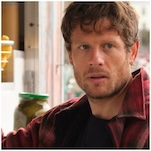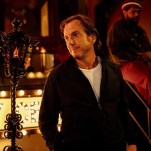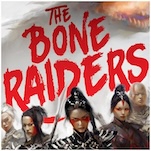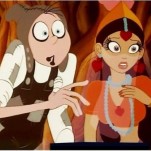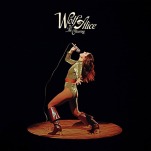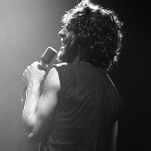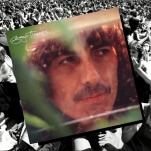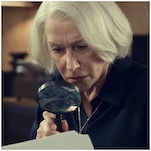Clint Eastwood’s Long Goodbye
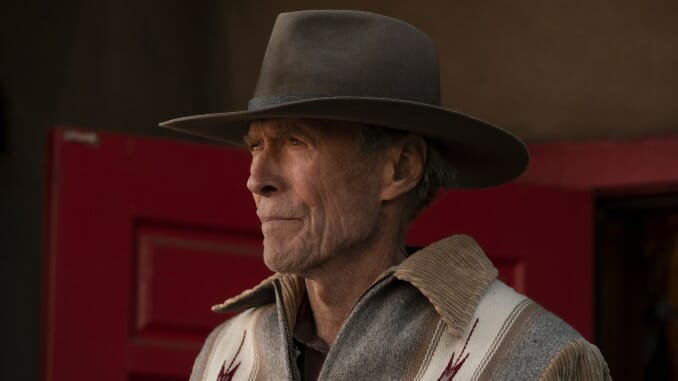
Unforgiven, Clint Eastwood’s last Western as a star and as a director, came out when he was 62 years old. Though standards shifted considerably between Eastwood’s early career in the 1950s and this early ’90s comeback, it remained true that many of the big stars making movies during Eastwood’s younger years did not offer a model for busy senior citizen careers. When Cary Grant was 62, he retired from acting. When Jimmy Stewart was 62, he wasn’t completely done, but he started to slow down considerably. When John Wayne was 62, he won his Best Actor Oscar—and continued making movies for another seven years, bowing out around the age of 70, several years before his death. (His final film, co-starring Stewart, was directed by Eastwood’s Dirty Harry director and mentor, Don Siegel.) No one expected Eastwood to retire completely after Unforgiven; by the time it won its Oscars the spring after its release, the thriller In the Line of Fire was prepping for a summer release, with his self-directed A Perfect World following that fall. But Unforgiven, with its elegiac deconstruction of Western genre tropes (and its multiple scenes of an older, out-of-practice Eastwood failing to mount his horse!), certainly felt like the closing of a chapter—Eastwood’s Westerns, at least, were coming to an end.
Nearly 30 years later, Eastwood has retrieved his cowboy hat to make one more Western-themed sign-off with Cry Macho, where he plays a former rodeo guy sent to Mexico by his rich former employer (Dwight Yoakam), entrusted with the task of retrieving the rich man’s teenage son. Cry Macho is less mournful than Unforgiven, but it too feels like a goodbye. The truth is, every time Eastwood appears on screen these days, it’s easy to picture the movie in question as his final act.
That’s not strictly because of his physical frailty. Yes, he certainly moves slower and more delicately than he used to, and Cry Macho generates suspense just by having him try to climb back onto a wild horse before cutting, with a relief, to a stuntman-assisted wide shot. But he seems to be playing lower than his actual 91 years (not least because men living past age 90 was even more rare back in 1979, when the movie is set). He does so convincingly; there are plenty of 75-year-olds who would love to be as spry and energetic as Clint Eastwood, even the broken-down, non-movie-star version of him depicted here. No, Eastwood’s last few on-screen appearances have felt like a farewell because of the movies themselves. Cry Macho joins The Mule, Gran Torino, Million Dollar Baby and Unforgiven as another stop on the three-decade Eastwood goodbye tour. Even Trouble with the Curve felt a bit like a possible stopping point, mitigated only by our certainty that Eastwood would never let someone else direct his final performance—not even a trusted colleague like his longtime producer Robert Lorenz.
Eastwood’s long goodbye could have been clocked even earlier than Unforgiven. In 1992, he hadn’t made a Western in seven years and his previous entry in the genre, 1985’s Pale Rider, cast him as a mysterious stranger who (it becomes clear over the course of the movie) is some kind of avenging-angel figure. As a companion of sorts to High Plains Drifter, in the midst of an extended genre dry spell, it would have made a suitable curtain call. But Unforgiven gave him one last ride on an even darker and more barren landscape, with Eastwood playing William Munny, a former thief and cold-blooded killer who has been reformed by the love of a good woman. After her passing, Munny struggles to make ends meet as a hog farmer (in addition to grappling with his horse, Eastwood also lands face-down in the muck trying to wrangle some pigs), and, for the sake of his children, accepts one more job as a hired killer.
The whole movie is a series of cascading moral compromises. Munny has been hired to provide justice for a prostitute whose attackers have been let off easily in a transactional arrangement with a local sheriff (Gene Hackman). But their hired executions, while perhaps more frontier-style “just” than the light fines initially levied, are messy and upsetting. They also lead to the tortured death of Munny’s friend Ned (Morgan Freeman)—which in turn brings out the vengeful beast within Munny. Violence begets further violence; though plenty of folks are left standing at the end of Unforgiven, it does feel distinctly like the board has been cleared, with a body-strewn saloon and few people of consequence left to kill. Unlike Pale Rider, Unforgiven doesn’t end with Eastwood’s character riding off into the distance. Instead, it returns to a static, silhouetted shot of the Munny homestead, as onscreen text informs the audience that a subsequent visitor to the farm found it abandoned, and the family was rumored to have started over in California.
This understated disappearing act is echoed in Million Dollar Baby, with Eastwood’s Frankie Dunn never returning to the boxing gym after helping his surrogate daughter Maggie (Hilary Swank) end her own life. Like Unforgiven, Million Dollar Baby won Best Picture and Best Director Oscars, and with Eastwood entering his mid-70s, it seemed conceivable that his movie-star persona might slip away, just as Frankie does.
-

-

-

-

-

-

-

-

-

-

-

-

-

-

-

-

-

-

-

-

-

-

-

-

-

-

-

-

-

-

-

-

-

-

-

-

-

-

-

-

